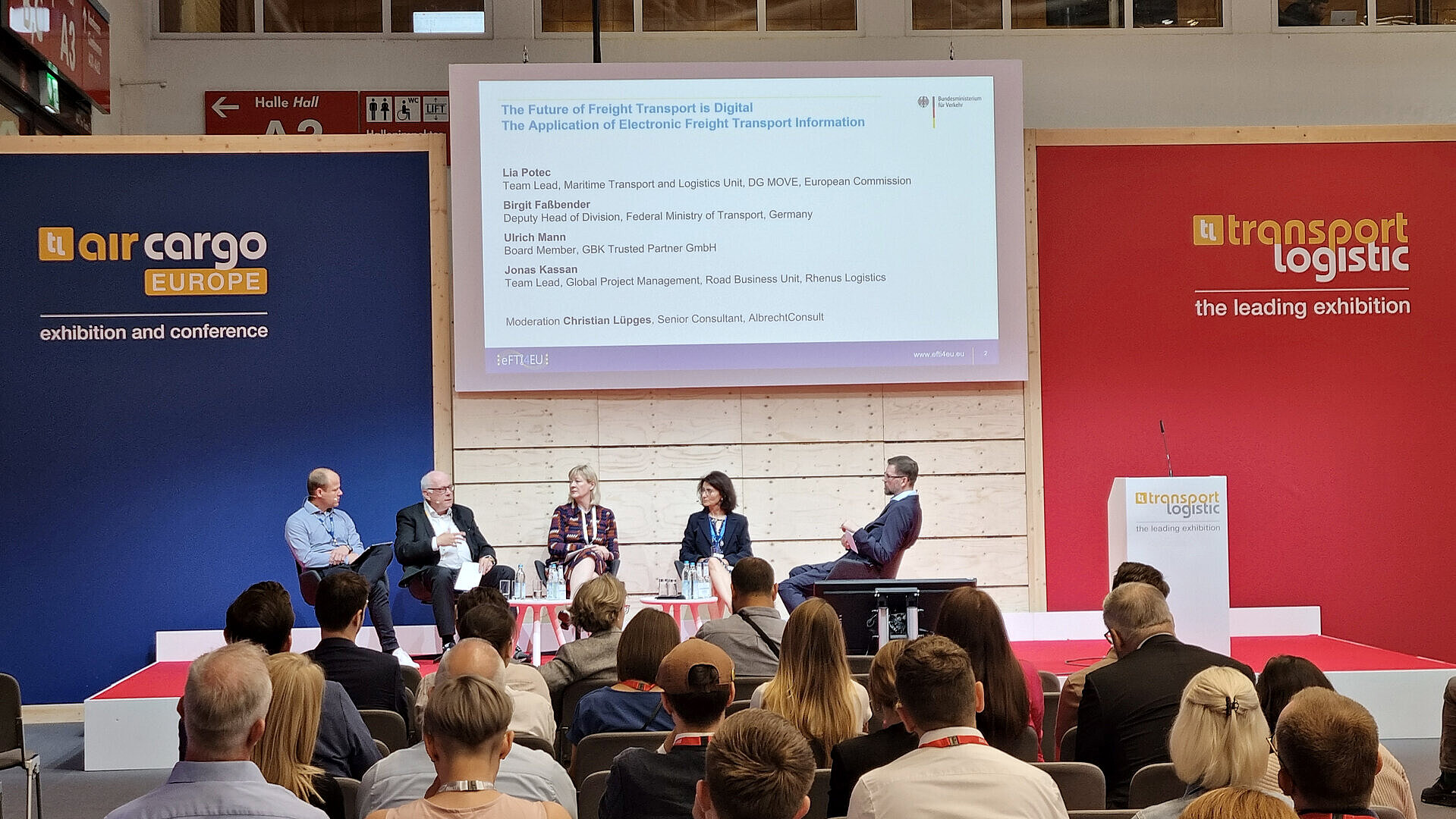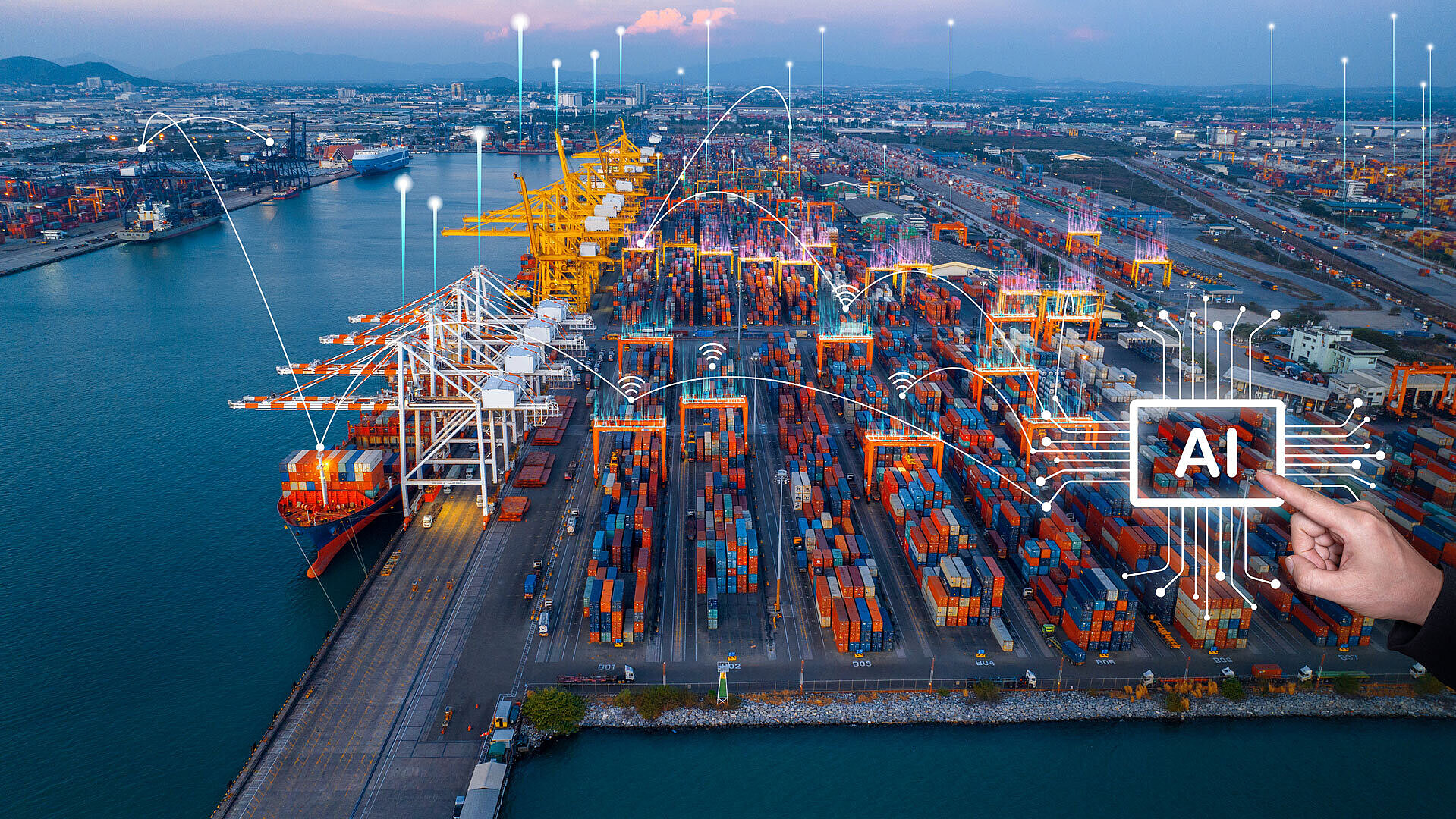
EU focuses on digital freight information

The aim: faster, more efficient and more targeted controls - across all modes of transport. A panel discussion at transport logistic on Wednesday provided information on the status of implementation. Lia Potec, Policy Adviser to the EU Commission, began by giving a detailed overview of the IT structures behind eFTI. She has been responsible for the preparation, adoption and current implementation of the EU regulation on eFTI for more than six years - and is confident: ‘The work is going according to plan and we will get eFTI up and running on time.’
Germany part of ‘eFTI4EU’
Germany is also making good progress, according to Birgit Faßbender, Deputy Head of Division at the Federal Ministry of Transport (BMV). Although the ‘Digital’ area was separated from the Ministry of Transport following the federal elections in February 2025, the BMV is still driving the project forward. As one of nine EU member states, Germany is participating in the EU project ‘eFTI4EUֹ’ together with 22 project partners. According to Faßbender, the aim is to standardise the operation of so-called national ‘eFTI gates’ across Europe, which provide member states with digital access to the eFTI network. The BMV is also organising workshops in which ‘companies and future eFTI service providers with digitalisation expertise discuss key aspects of electronic freight transport information.’
EFTI is initially only mandatory for public authorities. Its use is initially voluntary for companies. However, the EU Commission has announced that it will carry out an evaluation of the eFTI regulation by 2029 and reserves the right to make the regulation mandatory for companies from 2029. In order to gain access to the system, businesses must use certified platforms, which may need to be connected to the company's internal systems.
Ulrich Mann, a member of the management team at GBK Trusted Partner GmbH - the official contact for the electronic transport document (TP1) in Germany and a specialist in electronic dangerous goods transport documents - points out that most companies still need to set up the necessary IT structures. ‘There are still many different systems and formats, and compatibility is not yet a given,’ says Mann.
Rhenus Logistics is also currently working intensively on the digitalisation of internal processes. ‘It would be too much to say that we are specifically preparing for eFTI,’ says Jonas Kassan, Team Leader Global Project Management, Road Business Unit at Rhenus Logistics. ‘But we can see the benefits and have it on our agenda as part of various digitalisation measures. We're working closely with various partners on this.’ Mr Kassan cited the Open Logistics Foundation as an example. This organisation had previously presented industry-ready software at transport logistic, which is intended to bring the digital consignment note (eCMR) to a common standard. (in)



